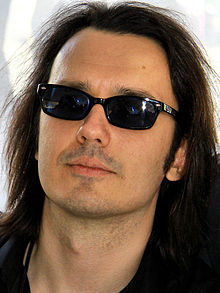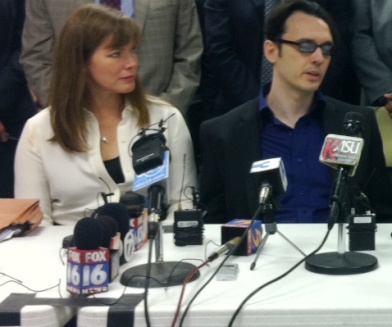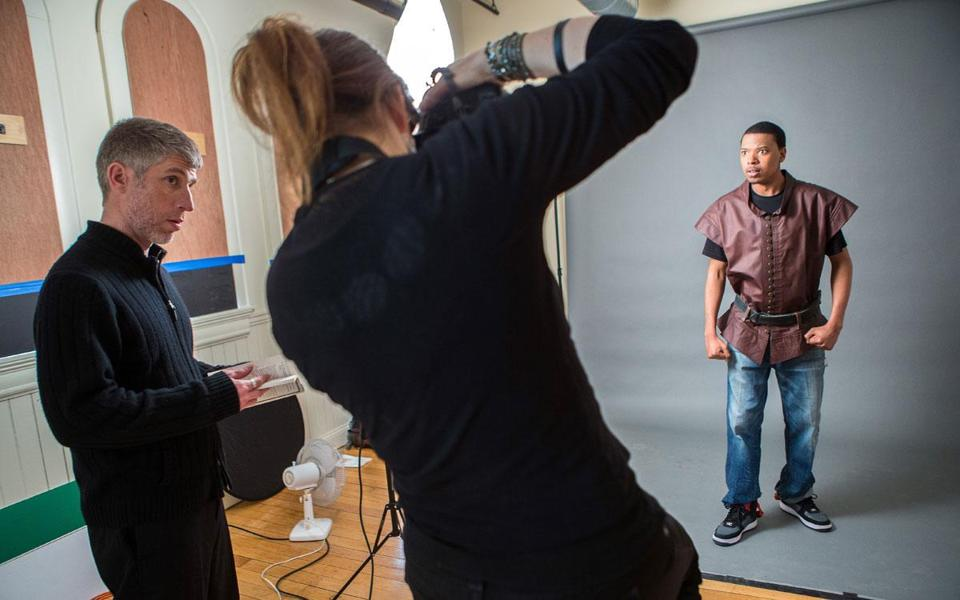Last week I went to an event at Brandeis University with my niece to hear Damien Echols talk about his 18+ years in solitary confinement. Echols is one of the so-called "West Memphis Three," all from West Memphis Arkansas and falsely convicted for the brutal murders of three boys in 1993. Following a high-profile, celebrity-backed campaign to free the the three prisoners, all of whom received the death penalty, Echols and his two co-defendants were released from prison in August 2011. They agreed to a rare plea bargain that essentially had them plead to guilt and not sue the state in exchange for immediate freedom. It's a story made for a movie — and there is one and there will be another. Plus many celebs helped with the case that includes stories to make your skin crawl–false accusations of Satanism, police corruption, i.e. the works. Altogether another tragic indictment of our system.


Damien Echols on the left, and with his wife, Lorri Davis, who heard about his case, wrote to him, worked on freeing him, and eventually moved to Arkansas where they were married while he was in solitary in that prison.
But that's not what stirred me to write this blog.
Yesterday I came across an article about Echols going back to Tennesee for the first time since he was released from prison in 2011. For whatever reasons, he was invited to talk at… (ready?) — a technology conference. Now, granted, just having Damien Echols come to your conference could add to the draw, but asking him to talk about his reactions to technology since he got out of prison seems at once fascinating and almost a little cruel. How overwhelming must it be to get out and find yourself in this world where everything goes so fast you hardly have time to breathe!
And juxtapose this with what Echols said at the talk and writes about in his new book Life After Death — he eventually learned to spend up to 6 hours a day in prison meditating. He bludgeoned his body to stand or sit in cold and heat and pushed himself through the physical pain. He escaped the bars mentally, found himself through deep soul searching, got a modicum of peace. His spiritual practice as well as his wife saved his life, he says.
So imagine after solitary confinement for eighteen years, walking into Best Buy. The computers. The cell phones. The tweets and whistles. Twitter, Echols says, he likes, because it feels like he's writing poetry. Texting too, a language unto itself. But learning it in a heartbeat? And what about the other bombardments of the techno-savvy 21st century? Apps? Blogs? Flicker? All the ins and outs of the technological world, not to mention discovering that you can securely (sometimes) use credit cards online and drive straight through those giant stalls with Easy Pass. What seems commonplace to us, natural, we actually learned step by step, year by year.
I remember how Dolly, one of the women I taught who spent fifteen years at Framingham Women's Prison in Massachusetts, said that the scariest thing after release was looking at the prices of shoes in the mall. She said she started shaking and couldn't stop. Yes, there's reuniting with your loved ones. There's the joy of seeing green grass, the ocean, or a blanket of snow across a mountain. And surely, hot fudge in the free world is as blessed as a bath. But the shock of having been years behind the eight ball, the feeling that you are always trying to catch up has to take time to deal with, and maybe more years to get over.
So while we (and I speak as much of myself here as you) might envy Echols for having a New York Times bestseller or for having the likes of Johnny Depp and Peter Jackson support him with their fame and opportunities, the truth of Echols's life is not celebrity or fame, but the hard darkness of coming out of the most repressive world in this country where we keep people in intolerable conditions. Coming into the light from darkness — it is no wonder that Damien Echols must wear dark glasses.




